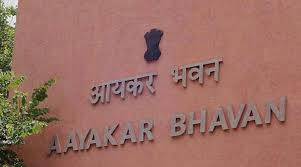 Prime Minister Narendra Modi announced several tax measures on the eve of India’s Independence Day last week honouring the honest tax-paying citizen.
Prime Minister Narendra Modi announced several tax measures on the eve of India’s Independence Day last week honouring the honest tax-paying citizen.
You will now have to file your income-tax (IT) return or pay higher percentage of tax deduction at source if you make certain spends in a year.
If you spend Rs 20,000 a year as hotel expenses, property tax or even a health insurance premium, then your transactions would be reported. Similarly, if your annual rent exceeds Rs 40,000, life insurance premium is at least Rs 50,000 or electricity bills of Rs 1 lakh or more during a financial year, then you would be answerable to the taxman either via notices or through mandatory filing of returns.
The motive of the move is to check whether your spending is in line with the income you actually disclose in your return.
The Government has been shunting all doors to not only reduce the number of all cash transactions, but also increase the number of returns filed. The new move to collect spending data is another tool in the armoury to curb tax evasion.
Are transactions tracked currently?
The existing income tax rules mandate financial institutions such as banks, mutual fund houses, share registrar and transfer agents,sub-registrars to report high value transactions exceeding a specified limit during a financial year to the Income Tax Department.
So, a bank has to report details of every account holder who makes cash deposits of more than Rs 10 lakh in a year in a savings account or makes a payment of more than Rs 2 lakh from his credit card in a year. Similarly, asset management companies are required to report details of all the investors who invest more than Rs 2 lakh in a single mutual fund scheme. Now not only your investments and financial transactions, but also your specific spends will be tracked.
Do I have to inform the government of all my spends?
No. You do not have to go out of your way to inform the government or anyone, unless asked for in the tax return forms. Your purchases and expenses beyond a threshold will be mentioned in the returns of the hotel, electronic goods seller, artist, school, ceramic supplier or the Registrar in the case of property purchase, apart from banks, mutual fund houses, life and general insurance companies.
The details mapped to you would be reflected in your individual tax statement or Form 26AS. This form would be available on your income-tax website login.
The moment your spends in any of the high-spend categories mentioned, exceed the respective threshold limits, your Form 26AS would capture it. In other words, you have to file your tax returns.
Non-filing of ITR may have severe consequences for a person, who is otherwise required to file an ITR. Apart from attracting interest, late fee and penalty, wilful non-filing of ITR may also attract criminal prosecution.
The new move has been part of the government’s move to widen the tax net and get more and more people to file their income tax returns. A total of about 55 lakh or 80 per cent of the total returns are filed by people having an income of up to Rs 5 lakh, as per the Central Board of Direct Tax’s numbers as of July 31, 2020.
Only 5,066 individuals, who have an income above Rs 1 crore file returns, accounting for 0.73 per cent of the total individual tax returns.
Taxpayers would not need to mention their high-value transactions in their income tax returns, said officials in the know of the matter, but added that broadening the scope of reporting financial transactions by third parties had become vital since taxation was moving towards a faceless approach.
It’s clarified that only third parties would report high-value transactions to the income tax department as per the Income Tax Act. The information would be used to identify people who are not paying up due taxes, and not for examining affairs of honest taxpayers.
“The information will be used to identify those who are either not filing the returns or the income disclosed in the returns are not proportionate to the pattern of expenditure reported in the statement of financial transactions (SFTs),” the official said.
Data analytics and artificial intelligence will be used for this, instead of manual intervention.
Terming the method as most ‘non-intrusive’, the official said it would be used for identifying those who spend big money on business class air travel, foreign travel and expensive hotels or send their children to expensive schools, but do not pay taxes, claiming their income to be under Rs 2.5 lakh a year.
Prime Minister Narendra Modi flagged this very issue on Thursday, and asked people to pay their fair share of taxes, given that the country’s tax base was relatively small.
“Only 1.5 crore people pay taxes in a country of 130 crores,” he pointed out while launching a taxpayer’s charter and faceless assessment, aimed at improving transparency in tax administration.
“No doubt, the third-party reporting of high-value transactions made by such non-filers would allow the department to nudge such persons to file their returns and pay their due tax,” the official said.

